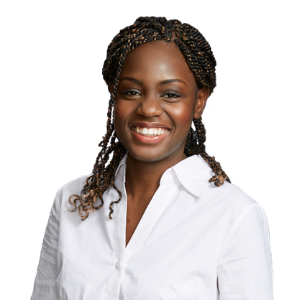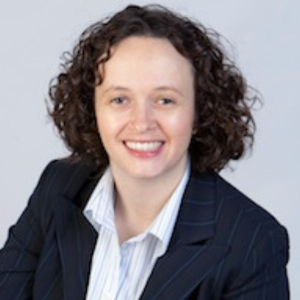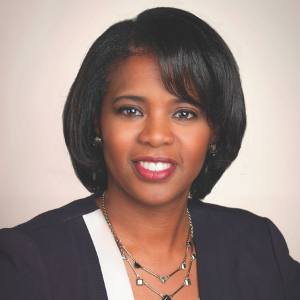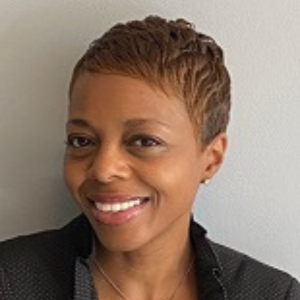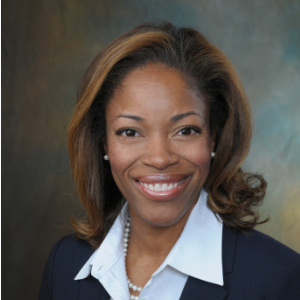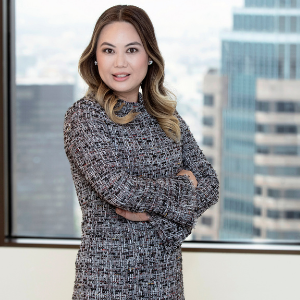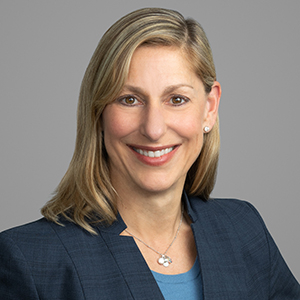Courtney Lee: Associate Investment Strategist, Dimensional Fund Advisors
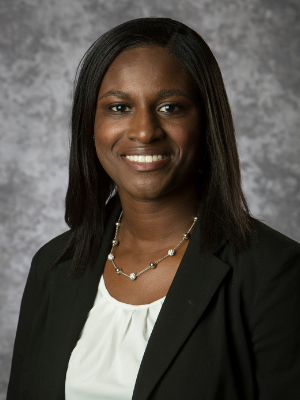 “You can learn anything. You just have to be confident in your ability to learn,” says Courtney Lee, who has recently moved to Dimensional Fund Advisors (DFA).
“You can learn anything. You just have to be confident in your ability to learn,” says Courtney Lee, who has recently moved to Dimensional Fund Advisors (DFA).
Lee shares on the value of the learning curve, bridging the gap in socializing at work and taking a scaffolding approach to overcoming networking aversion.
Chasing A Steep Learning Curve
Coming out of Brown University with a business economics degree but no desire to go down the Ph.D. route, Lee found herself moving towards finance and then investment management.
She was not drawn to the idea of sales—or the outgoing, used car salesman kind of personality she associated with it—but she tried it with a friend’s referral.
“I ended up enjoying sales once I discovered how to implement my own approach” reflects Lee. “Essentially you just provide people with information and let them decide how they want to use that.”
When the steep learning curve flattened out, however, Lee grew restless and sought out an MBA from Washington University in St. Louis, so she could develop analytical skills to dive deeper into the data.
“There are a lot of factors at play that affect your investment portfolio—part of my job is to understand and communicate those factors,” says Lee. “My job is to explain complicated things in an uncomplicated manner so that people can understand it.”
Building Up Your Learning Capacity
“I look for steep learning curves,” says Lee. “I do that over and over and over again”—such as enrolling in a rotational program at State Street Global Advisors (SSGA) after business school.
“I begin new opportunities with confidence that although I don’t know much yet, I will. I have to be curious and unashamed about asking questions,” says Lee. “If something is unclear, I do not assume that my questions are dumb or that everyone knows except me. I just ask. By asking those questions early and often, I climb the learning curve.”
If she could, Lee would assure her undergrad self that it’s okay to not know what she doesn’t yet know and that she will learn most things on the job.
“What you’re learning in university is a good foundation,” she notes, “but you’re always going to have a learning curve—the gradient depends on your background and what fundamental knowledge you have.”
As a Division 1 basketball player back at Brown, she used to return pre-Covid to share her experience and perspective with student-athletes.
“I tell them that employers know that you don’t know everything,” she says. “They’re hiring you because they’re confident that you can learn and that they can teach you what you need to know to do the job.”
She recommends building up your learning capacity to lessen the curve each time—“continue building a strong foundation of relevant knowledge and skills that make climbing the learning curve easier and faster.”
Lee values mentorship for gleaning insight and knowledge from those ahead of her on the curve.
“I often use mentorship for perspective,” she says, calling on others to help her think about a situation, to check her thought processes, to ask how they would handle a decision.
“I don’t know what I don’t know,” Lee says, “but there are a lot of people who can guide me.”
Bridging the Gap
Building up camaraderie with mostly male colleagues in the office wasn’t easy in the early days when she began.
Lee noticed she wasn’t getting invited to lunches or to happy hour. Playing basketball during Friday lunch was the bridge she took to finding other common ground.
Once she connected on the basketball court, Lee began to be invited out with colleagues. Other times she simply asked to join them. While socializing has become less of an issue, Lee still feels women at her level are hampered by stuck perceptions and taboos.
“Male colleagues can go out for a drink with a male boss or a male boss’s boss without scrutiny. The same is not always true for young female professionals,” she observes.
Building Up To Enjoying Networking
Lee admits being initially resistant to networking, but the lasting relationships that she’s built at each firm are now what she finds most fulfilling.
“As an undergrad, I thought of networking as superficial and intimidating” says Lee, but her business school experience slowly broke her from this aversion.
“At Washington University in St. Louis, networking was a requirement during orientation. They made it easy and low stakes,” she recalls. “First, you were networking with your classmates. And by networking with your classmates, you’re making friends.”
Lee explains how the school took a scaffolding approach. After classmates, students were then asked to connect with alumni, who could offer valuable insight and advice. Lastly, they applied their networking skills with prospective employers.
“By the time the employers come in, you’re like I’m just connecting with people and having a one-on-one conversations,” Lee reflects. “I’m an introvert, and I felt comfortable with that.”
Even when it comes to event networking, Lee recalls valuable advice such as considering approaching a group of two or three people, rather than a group of four with no obvious space to step into.
“Others are often there for the same reason and it can be awkward, so they’re looking for you to initiate too,” she notes.
Developing Expertise and Contributing
While she loves traversing learning curves, Lee is excited to transition from a generalist to building expertise in her new position.
“I’m really excited to climb this learning curve,” she says. “It’s a new firm. It’s a new role. There’s a new investment philosophy, so all of it is very stimulating. My goals are to learn and contribute.”
During one of her rotations back at SSGA, she specialized briefly in Environmental, Social, and (Corporate) Governance (ESG) investments. She’s excited that much of this approach—such as exclusionary and inclusionary screening—is being increasingly integrated into the broader investment process throughout the industry.
Her personal donor-advised fund, a fund used solely for contributing to non-for-profits, is also invested in sustainable and impact strategies.
Growing In New Surroundings
Lee is settling in after a move from Boston to Austin, Texas for her DFA role, intent on the conscious effort to build community in a pandemic world.
Yet another learning curve Lee has launched herself into is DIY woodworking. With her move, she brought a coffee table, blanket ladder and sit-stand desk she crafted with her own hands.
“With guidance, I think I can learn how to do this,” she says, no matter what it is—and all the evidence shows she can.
By Aimee Hansen

